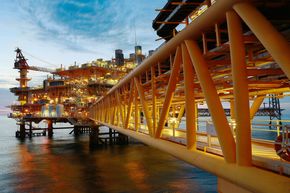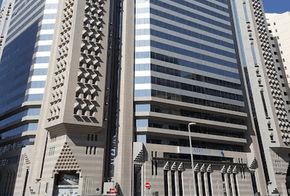API 571 – Corrosion and Materials Exam Preparation

- Online (Microsoft Teams)
- +971 562069465
- info@velosiaims.com
-
Velosi is conducting API 571 – Corrosion and Materials Exam Preparation Trainings online.
The API 571 Corrosion and Materials Certification is for engineers, inspectors, and industry specialists who want to demonstrate that they understand damage mechanisms in the refining, petrochemical, pulp, and paper industries. The first step in maintaining safe and reliable equipment is to understand and correctly identify damage mechanisms. In order to apply API 510, API 570, API 653, API 580, API 581, and API 579 codes, quality assurance inspectors must be conversant with API 571. When assessing the remaining life of equipment, it is necessary to have a fundamental understanding of damage mechanisms. The training material in the API 571 course covers a wide range of damage processes.
-
This course is designed to achieve the following goals:
- To assist participants in comprehending the various degradations and damages done on refinery equipment.
- To be able to detect, analyze, and prevent refinery equipment degradation and damage.
- To provide attendees with advanced information on equipment maintenance, both preventative and predictive,
- To understand the elements that cause damage, to properly monitor and inspect damage, and to prevent or mitigate damage mechanisms.
- To demonstrate the interrelationship between material and service conditions by presenting example corrosion failures.
- Assist participants in passing the certification exams.
-
Training will be conducted via Microsoft Team Meeting. Meeting invites will be shared on the day before the first day of training.
-
5 Days at 09:00 AM to 03:00 PM GST (Dubai Time)
-
- Presentation Slides
- Training Recordings
- Study References
-
Certificate will be issued upon successful completion of training.
-
This course is appropriate for a wide range of professional but not limited to:
- Engineers, Integrity Engineers, RBI Engineers, Maintenance engineers and technicians, Pressure Vessels/Piping/Tanks/Boilers Inspectors, and any other inspection professions as well as those who troubleshoot plant operations, fall under this category.
- QA/QC engineers will benefit from this course regardless of whether or not they plan to take the API 571 exam.
- Corrosion engineers will benefit greatly from this course in terms of locating, assessing, avoiding, and reducing corrosion mechanisms and related refinery equipment issues.
-
You are automatically qualified to take the API 571 Corrosion and Materials certification exam if you have a current API 510, 570, or 653 certification.
If you don’t have, you’ll be qualified based on a mix of your education and industry experience gained in the last 10 years.
Please use the chart below to see if you are eligible to take the API 571 exam before submitting an application. Your application must include documentation of the needed minimum experience.
Education Years
of Professional ExperienceExperience Required A bachelor’s degree or higher in engineering or technology is required. 1 year Any experience in the petrochemical industry 2-year engineering or technology degree or certificate 2 years Any experience in the petrochemical industry High school diploma or equivalent 3 years Any experience in the petrochemical industry No formal education 5 or more years Any experience in the petrochemical industry
-
This exam can now be scheduled at either in-person or remote proctoring locations.
API invites highly skilled inspectors, corrosion engineers, chemical engineers, and other professionals from across the petrochemical industry to earn the API 571 Corrosion and Materials certification as proof of their in-depth understanding of corrosion processes.
The API 571 certification will add great value to your professional qualifications, indicating to employers and clients that you have a high degree of proficiency and awareness in this critical subject.
-
- The API 571 Corrosion and Materials certification exam questions are based on API RP 571 Damage Mechanisms Affecting Fixed Equipment in the Refining Industry.
- The API 571 exam’s Body of Knowledge includes the whole API RP 571, 2nd edition (2011), with the exception of parts 1.1, 3.1, 4.1, and 5.2.
- All exam content will be based on API RP 571, 3rd edition beginning with the December 2021 test window (2020).
-
- The API 571 exam takes 3.25 hours to complete.
- There are a total of 80 questions, however only 70 are scored. The remaining ten are pretests that will not be graded. Starting in December 2021, there will be 110 questions, with 100 of them being scored.
- All of the questions are multiple-choice and have a closed-book format. Exams do not allow the use of paper or reference materials.
- This exam has a set passing scaled score.
- View the Exam Tutorial before exam day to familiarize yourself with the format.
Certification Validity: 3 Years
-
Group Discount (same company only)
- 15% Discount for groups of 5 or more
- 10% Discount for groups of 3-4
Bundle Discount
- Sign up for 2 courses and get an extra 10% off
- Sign up for 3 courses and get an extra 15% off
Course Outline
-
- Introduction to Damage Mechanisms as defined by API 571
- Fundamentals of Corrosion
- Identification of Damage
- Damage Mechanisms in Refining Industry
- Type of damage mechanisms to be covered by API RP 571:
- Sulfide stress corrosion cracking
- Reheat cracking
- Polythionic acid stress corrosion cracking
- Corrosion Under Insulation (CUI)
- Soil corrosion
- Sulfuric acid corrosion
- Wet H2S cracking
- Graphitic corrosion
- Mechanical fatigue
- Phosphoric acid corrosion
- Caustic corrosion
- Dissimilar metal weld (DMW) cracking
- CO2 corrosion
- Brittle fracture
- Chloride stress corrosion cracking
- Carburization
- Hydrogen embrittlement


